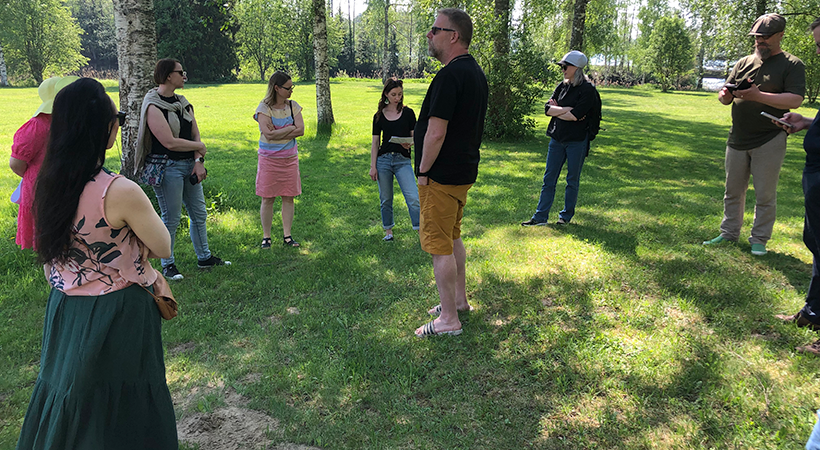In an evolving higher education environment, the need for adaptive, student-centred and innovative teaching methods is becoming increasingly important. South-Eastern Finland University of Applied Sciences (Xamk) has at least partly recognised this need and has, for example, been involved in the UusiX2030 to reform pedagogical practices. Uusix2030 is Xamk’s development project, which has the objective of reforming the structures of learning and teaching. It has the aim of developing student-centredness, in accordance with the requirements of future working life, sustainable development and internationalisation, among other things. Through the project, Xamk aims to create a new kind of competence-based curriculum, emphasising interdisciplinarity, combining research and teaching, and closer links with working life. This article examines Xamk’s practices for developing the pedagogical competence of its teaching staff, both current practices and challenges, and future proposals for improvement.
Pedagogical competence is essential for teachers in universities of applied sciences, focusing on quality teaching, support for learning and professional development. Modern pedagogical approaches see learning as an active, cognitive, and social process that requires teachers to guide learners to actively process information.
Mentors for coaching teachers to use digital methods
Xamk has implemented Peda coaching* to improve teachers’ pedagogical skills. This coaching programme supports teachers to adapt to changing educational environments and improve their teaching practices. The coaching is about 30 hours of work, consisting of joint meetings, workshops and an independent development task focusing on the direct application of new pedagogical models and tools to teachers’ work. The central idea of the pedagogical coaching is to apply the concepts learned directly to teaching and to encourage practical experimentation and pedagogical innovation. Peda coaching can also take the form of smaller modules if the teacher wants to develop a particular sub-area.
Xamk has a network of Peda mentors*. The Peda mentors are mainly teachers, whose purpose is to provide ideas and support for pedagogical development. They help to plan and implement various co-development projects and events, thus promoting the continuous improvement of teaching quality. They act as mentors in digital teaching and pedagogical coaching. The purpose of pedagogical mentors is not to be a trainer or advisor, but rather a sparring partner for pedagogical development and a spreader of good practices.
Despite the progress achieved through pedagogical coaching and the work of Peda mentors, there is still room for improvement in Xamk’s pedagogical development strategies.
Structured pathways and innovative support: improving pedagogical competence at Xamk
To develop teachers’ pedagogical competences, it would be important to develop a clear, structured pathway for teachers’ pedagogical development. This path should start at the basic level and progress to more advanced levels, so that teachers can develop their skills in a systematic way. It is essential to give teachers more working time for extensive and challenging pedagogical experimentation. These experiments could include interdisciplinary projects and work-life partnerships that would benefit teachers, students and working life. The introduction of incentives for pedagogical innovation, such as extra working time or skill badges, would motivate teachers to adopt new teaching methods. Recognising and rewarding these efforts can foster a culture of continuous improvement and innovation.
Peda mentoring needs to be extended to include more comprehensive support for teachers. Currently, there are several departments at Xamk where there is no peda mentor. This expansion could include regular peer reviews, feedback discussions and opportunities for collaborative teaching and learning, which would improve the overall quality of teaching.
It is also important to further support the integration of digital tools into teaching. This includes training teachers to use innovative technologies effectively and providing ongoing technical and pedagogical support to ensure that teachers are well equipped to deal with the digital aspects of modern teaching.
Increasing pedagogical competence at Xamk is crucial to meet the demands of modern education and prepare students for the challenges of the future. By developing structured pedagogical competence development pathways and allowing more working time for the development of pedagogical experiments, Xamk can create an environment that fosters innovative teaching practices and continuous professional development. These actions will ensure that teachers are well prepared to guide students effectively in an ever-changing educational environment.
* Abbreviation for pedagogical


